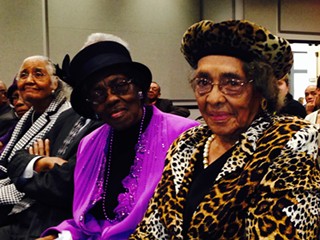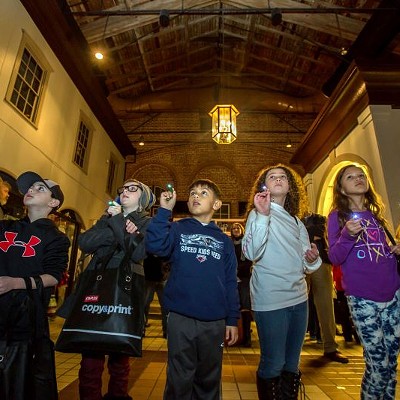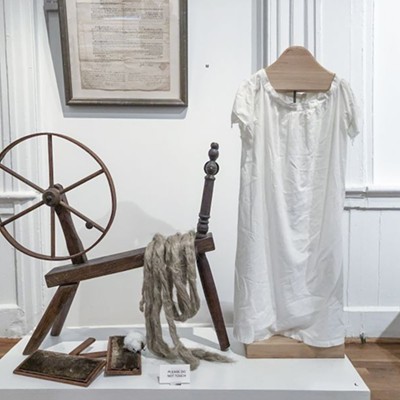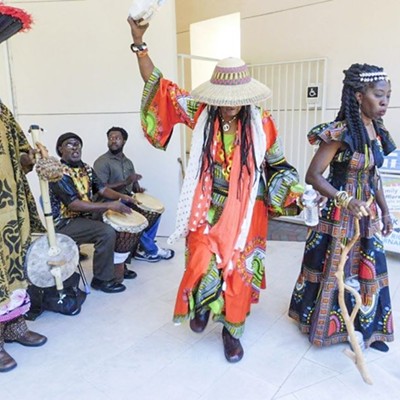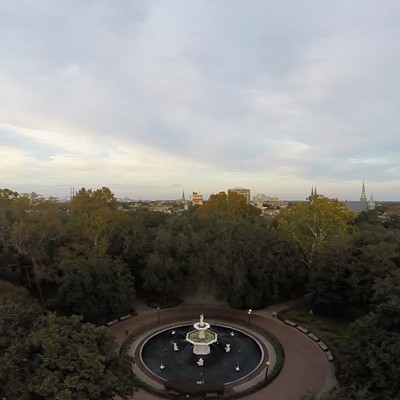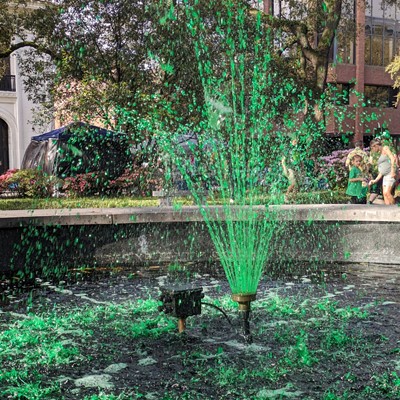Wilson Moran remembers growing up with the stories of bucolic waterways of Harris Neck, in McIntosh County, where his parents and grandparents cultivated rice, picked oysters and sang the hymns of their West African ancestors.
"They knew how to work on the land, with the land," he recalls wistfully. "They were 'green' before anyone knew what it was."
One of 13 brothers and sisters, Moran would have grown up in Harris Neck himself, if the 2,687 acres belonging to his and dozens of other African-American families had not been confiscated by the government in 1942. Reportedly irked by the success and self-sufficiency of Harris Neck's independent black community, officials designated the land for an Army airfield and gave the residents only three weeks to abandon their farms and homesteads.
Though they were promised they could return after WWII was over, Harris Neck citizens were dismayed when the federal government turned over the land to the county—then took it back from McIntosh County's notoriously corrupt commissioners in 1962, citing "mismanagement." Harris Neck has been federal property ever since, and the parcel is currently a designated wildlife refuge managed by the U.S. Fish & Wildlife Service and overseen by the Dept. of the Interior.
The original inhabitants and their descendants have challenged the edict in courts over the years to no avail.
"What our ancestors left for us, we lost it all," lamented Moran at the day-long Harris Neck Symposium at Savannah State University last week.
About 50 attendees listened to and shared stories about Harris Neck, including Rev. Edgar Timmons, Olive Hillery and moderator Otis Johnson. Organized by the Harris Neck Land Trust, the symposium aimed to provide a historical context as well as a future strategy to preserve the land's unique potential as a cultural center.
Moran's 92-year-old mother, Mary, resplendent in leopard print, also spoke. She was 21 years old and seven months pregnant when her family was forced out of Harris Neck, and still holds hope that she might live out the rest of her days on the still-pristine woodlands and ponds.
As a child, Ms. Moran absorbed the culture of her elders, slaves stolen from West Africa who were later bequeathed parcels of the Harris Neck property by the former plantation overseer. These farmers and fishermen maintained their traditions as part of the interconnected scattering of coastal black communities known as the Gullah-Geechee.
Ms. Moran caught the attention of ethnomusicologists in 1997, who recorded her singing a tune eerily similar to a funeral hymn of the Mende tribe in Sierra Leone. That song had been passed down through the generations at Harris Neck, and Ms. Moran and several of her children traveled to Africa in 2002 to track down the song's origins.
Since 2005, the Harris Neck Land Trust has been working to revert ownership back to the former residents, and several members testified before a Congressional subcommittee in 2012.
"It's literally going to take an act of Congress to bring them home," explained Dave Kelly, the trust's project coordinator.
Kelly organized last week's symposium not only to garner support for the cause, but also to inform interested parties about a change in strategy: Rather than seek to push a bill through Congress (a prospect deemed "unlikely" by panelist and land trust expert Russ Marane), the former residents are now proposing a long-term lease permit similar arrangements made with Native American and Alaskan Inuit tribes living on federal land.
"Even if there wasn't a precedent, it doesn't mean it can't be done. This is very doable," said Kelly, who added that possible development might include a museum with a working oyster house and a limited number of residences on an 80-acre parcel of the current wildlife refuge.
But after 70 years, returning home isn't that simple. While a long-term lease does not require Congressional approval, it has to work within the existing needs of the wildlife refuge, which serves as a protected habitat for migratory birds, including American bald eagles.
Refuge manager Kimberly Hayes believes the Harris Neck residents and the federal government will be able to reach an agreement.
"We at Fish and Game are committed to being a whole community," affirmed Hayes, who was present at the symposium but not invited to sit on one of the panels.
"The place where we can connect is the preservation of the Gullah-Geechee history."
Though the stories received rapt attention from the symposium audience, Hayes reiterated that no museum can move forward or homes constructed until plans are put on paper.
"We're still waiting on an official proposal," said Hayes.
As of now, that's where Kelly, Moran and the rest of the Harris Neck Land Trust are putting their efforts.
"The goal is the re-creation of a community that's in balance with nature," promised Kelly.
"The ball is in our court."

